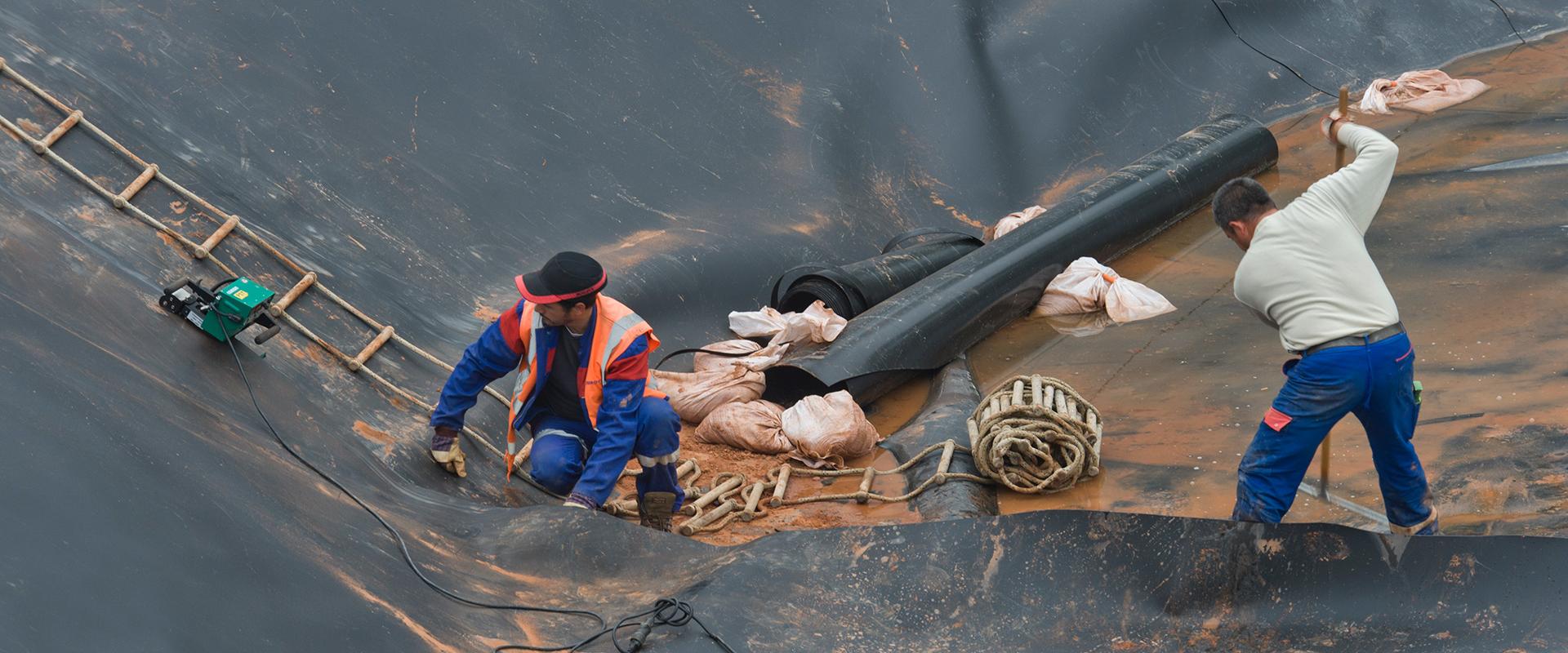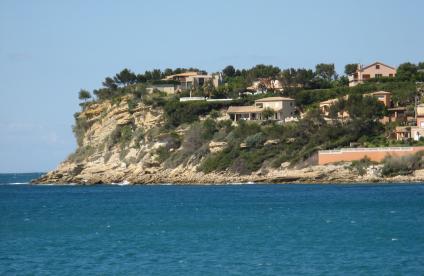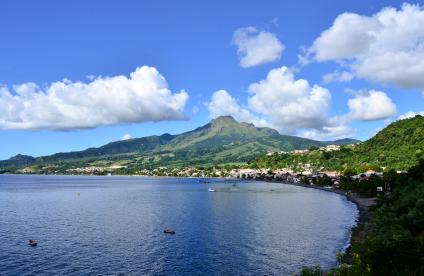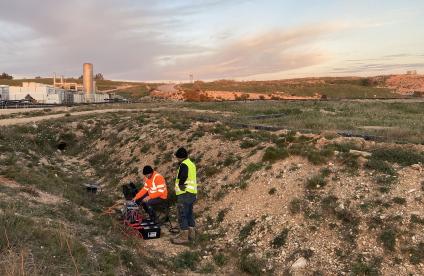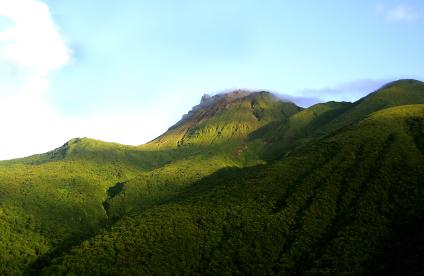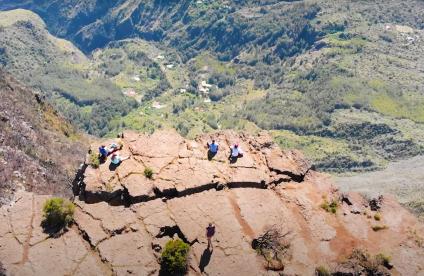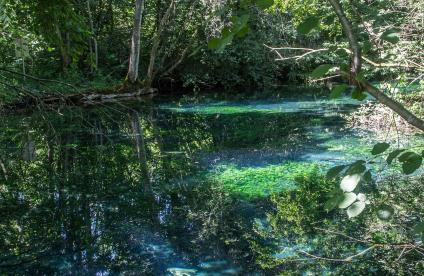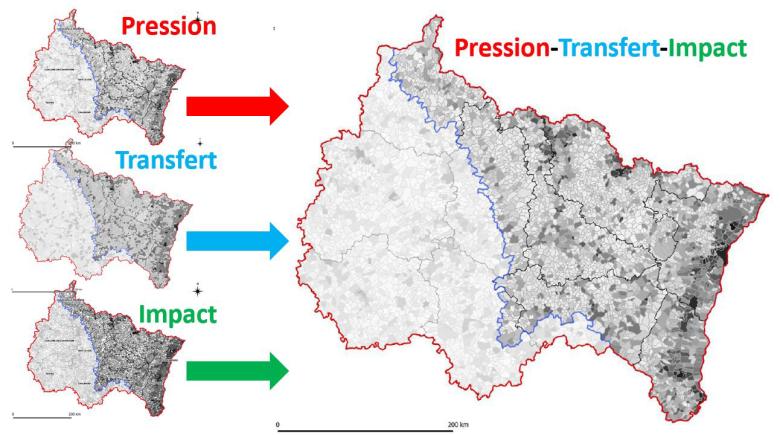
Cumulative calculation of the "Pressure - Transfer - Impact" score for groundwater in the municipalities of the Grand Est region and the Rhine-Meuse basin (period 2012-2017).
© BRGM
The need
When preparing its 2019 status report on groundwater quality in local water bodies, the Rhine-Meuse Water Agency wanted to have a more accurate assessment of the impact of industrial activities on groundwater and identify sectors where action might be needed to improve the quality.
The results
The study exploited data acquired between 2012 and 2017 and was carried out in two stages:
- The assessment of industrial pressures/transfers to groundwater/impacts on groundwater quality. This stage enabled us to quantify the extent of the pressure, transfer and impact resulting from industrial activities for all the municipalities of the Grand Est region and the Rhine-Meuse basin and served as a basis for the 2019 status report;
- An in-depth analysis of the impact of industrial activities on groundwater quality in 7 areas identified as representing priority cases in stage 1. The second stage involved an in-depth analysis of the impact of industrial pressures on the quality of groundwater in the high-priority areas in order to obtain the most detailed information possible about the nature of the impacts, the location of the groundwater affected and the industrial areas in which a proven impact had been identified (BASOL sites, ICPE files, etc.). Recommendations were then made for each area according to the level of industrial pressure, the quality of the groundwater, the availability of data and the issues identified.
Using the results
The results from the first stage were used by the Water Agency to draft the 2019 status report. The results from the second stage identified certain areas for which the available data did not enable us to strictly exclude the potential impact of one or more industrial sites on groundwater quality. Consequently, additional studies have since been undertaken, along with the inspection of DREAL classified facilities.
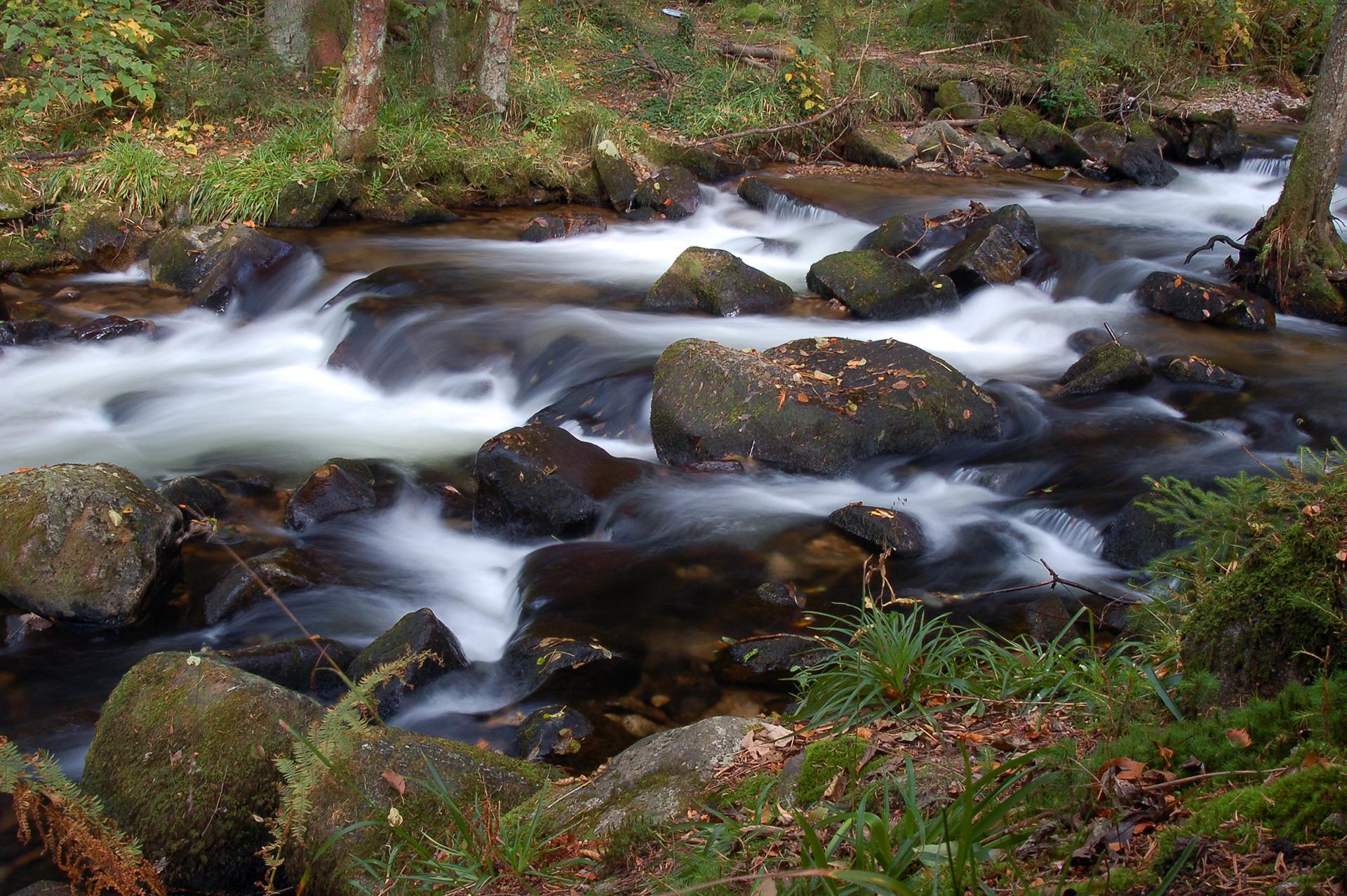
The pressure/impact study has two components, the first focusing on the Rhine-Meuse basin as a whole and the second looking more closely at certain areas in the basin. This study will provide field operators with an initial understanding of the issue of "polluted sites and soils" regarding groundwater by giving them access to visualisation tools and indicators obtained by crossing-referencing a large amount of data.

